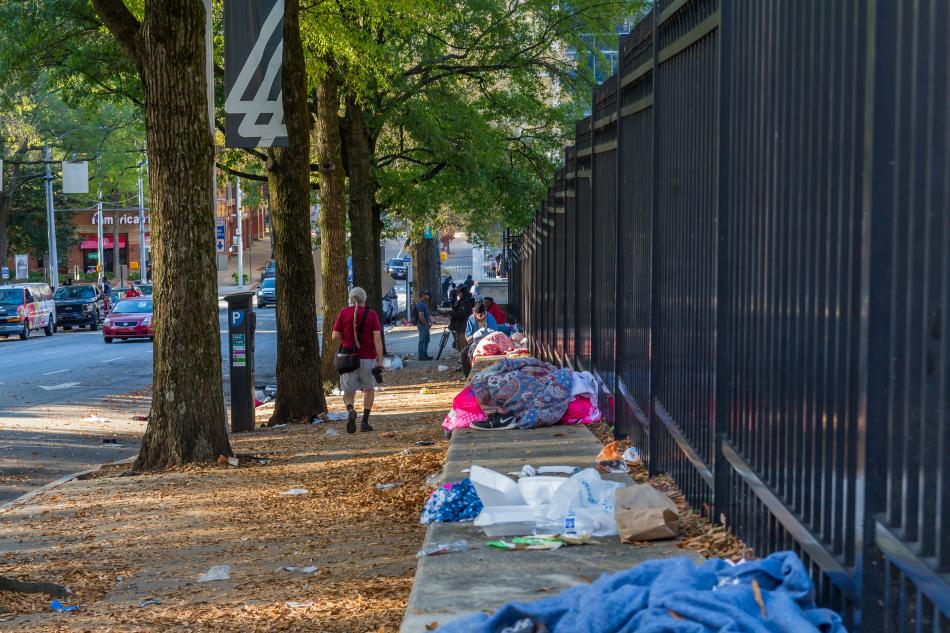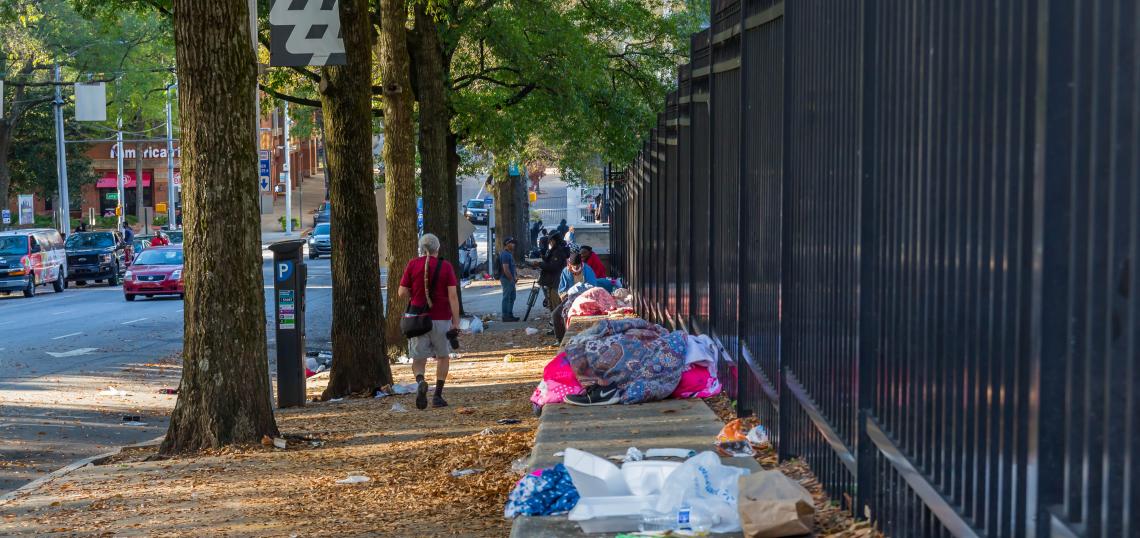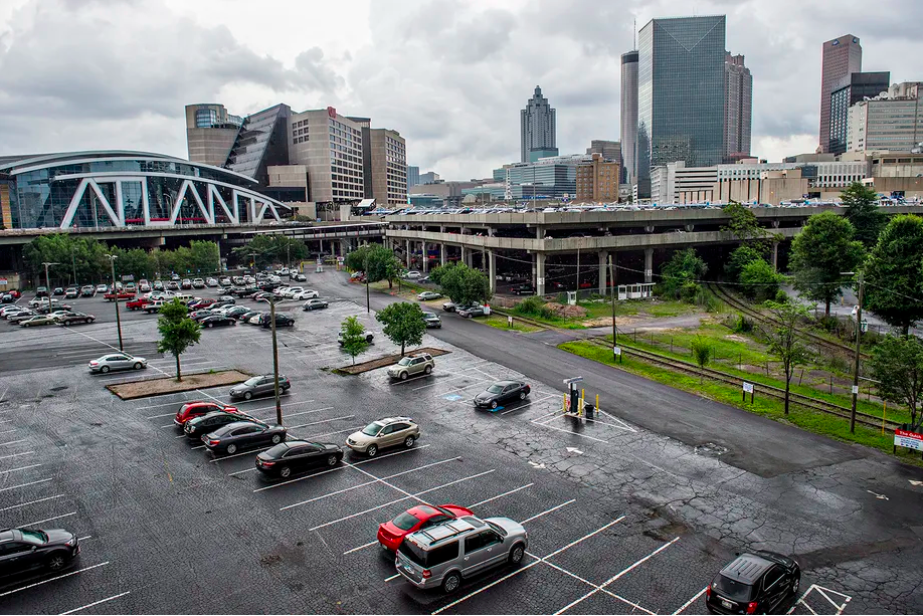Legislation is moving forward that city government leaders hope will dent homelessness in Atlanta, which continues at heightened levels in places such as downtown a year and 1/2 after shelters were closed during the COVID-19 pandemic’s onset.
The Atlanta City Council on Monday approved legislation put forward by Mayor Keisha Lance Bottoms that would provide roughly $3.5 million to help people experiencing homelessness in the city find viable housing solutions.
That money is expected to be matched by philanthropic groups, according to city officials.
Specifically, the funding would be channeled to Partners for Home, an Atlanta-based nonprofit, for critical services provided via initiatives called HomeFirst and LIFT.
Following the council’s approval, the funding is expected to provide "rapid rehousing" for 100 homeless households and options for hotel shelter rooms. It will also maintain street outreach and retain 100 shelter beds at Evolution Center, a support facility focused on unhoused men, according to the mayor’s office.
 As shown in November, food containers, clothing, and other items are strewn on the Central Presbyterian Church fence, along Mitchell Street near the Georgia State Capitol downtown.The Brownfowl collection/Shutterstock
As shown in November, food containers, clothing, and other items are strewn on the Central Presbyterian Church fence, along Mitchell Street near the Georgia State Capitol downtown.The Brownfowl collection/Shutterstock
Bottoms noted in a statement the city “will continue to lead with compassion so that every Atlantan has a safe place to lay their head at night.”
In related news, Bottoms also put forth legislation that would allow the city to spend $33.5 million recently received from Centennial Yards developers CIM Group in a way that boosts “historic community investment and equity,” per the mayor’s office.
CIM is benefiting from a nearly $2 billion tax-incentive package, the largest in Atlanta history and subject of a lawsuit that didn’t succeed in squandering the deal. In exchange, the Los Angeles-based developer has stated that 20 percent of all residences it builds in the Gulch’s downtown pit will qualify as “affordable” for 99 years. In the short term, CIM has also vowed to pay the city millions to help remedy Atlanta’s infamous inequity issues, and thus last week’s cutting of an oversized check.
That $33.5-million chunk, according to the mayor’s office, will be split three ways: to support affordable housing via development of public land, an anti-displacement fund, and down payment assistance; to establish a small business hub and programs involving local hires, savings accounts for qualifying children, and the launch of the mayor’s pilot program for guaranteed income; and to support workforce development by funding the Center for Transportation and Logistics at Atlanta Technical College.
Axios Atlanta reports the bulk of the funding—$28 million—will be placed in the city’s affordable housing trust fund. Still, as one academic critic told the news site, CIM’s incentives are far sweeter than investments the developer is making in the city now, in that tax money for everything from public safety to pothole repair is being lost.
• Atlanta mayor's office calls for $700M in traffic, sidewalk, bridge fixes (Urbanize Atlanta)







